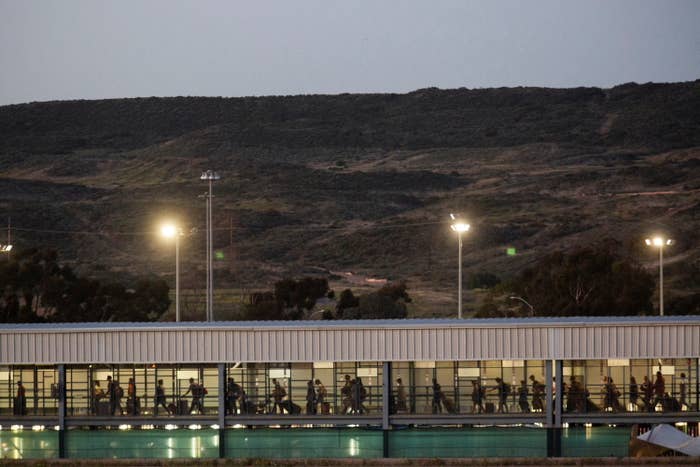
Ukrainians arriving at the southern border after fleeing war back home are being allowed into the US at a speed and ease most other immigrants don’t experience, a disparity that has frustrated attorneys and advocates who’ve been struggling to convince authorities that their clients deserve the same treatment.
For Ukrainians fleeing their war-torn country, the process to enter the US from Tijuana can take hours or days, advocates said, and hundreds are being processed daily. Meanwhile, immigrants from other places like Central America, Haiti, and Africa have been waiting months, and in some cases more than a year, in Mexico for the opportunity to seek refuge within the US.
In Tijuana, where the majority of Ukrainians are entering through the border, most are being allowed into the US on humanitarian exceptions to a Trump-era pandemic policy that expels almost all immigrants at the border. Humanitarian parole allows immigrants who are otherwise ineligible to enter the US to come into the country based on urgent humanitarian or significant public benefit reasons. It's also one of the few ways immigrants and asylum-seekers can currently seek protection from within the US.
Most immigrants who reach US soil are currently barred from accessing the asylum system and are quickly expelled at the border under a policy known as Title 42 that former president Donald Trump invoked and that the Biden administration has continued to use.
Senior Department of Homeland Security officials said they've processed close to 15,000 Ukrainians at the US–Mexico border so far. On Thursday, the Biden administration announced a new process that would allow Ukrainians with sponsors to fly to the US and apply for humanitarian parole, which, if approved, would allow them to stay and work for a period of up to two years.
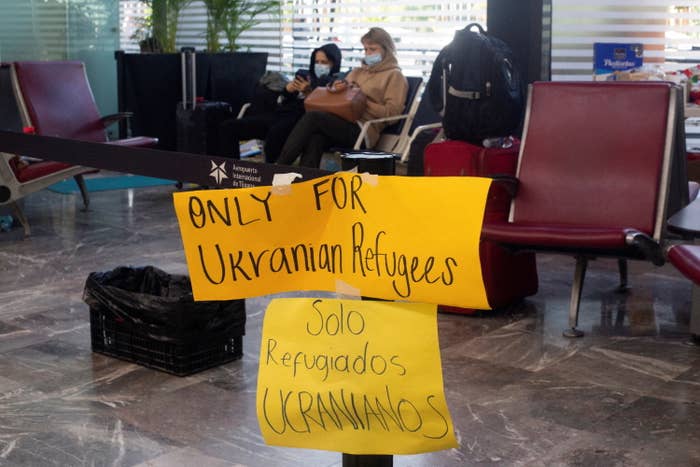
Officials said that as of April 25, Ukrainians who try to enter the US at a land border without a visa or not having gone through the new process, called Uniting for Ukraine, may be refused entry under Title 42 and told to apply for the new program. Exceptions can be made on a case-by-case basis if border officials find that someone from Ukraine deserves a humanitarian exemption from Title 42 for a different reason. The administration is expected to stop the use of Title 42 in late May.
"We are continuing to enforce the public health authority under Title 42 at the land border until May 23 and that will be the case for all nationalities," officials said.
The contrast in how the US and Mexico have been treating Ukrainians compared to people from other countries has been difficult to watch for advocates who fight and struggle to have their immigrant clients be allowed into the US to avoid deadly violence or lack of lifesaving medical care. It's not that Ukrainians shouldn't receive the current treatment, advocates said, but other immigrants who are also fleeing violence should be treated the same way.
"It's shockingly disparate treatment," said Erika Pinheiro, policy and litigation director with the advocacy group Al Otro Lado, which has worked with immigrants in Tijuana for years. "I have never worked with a population of refugees that have more resources than the Ukrainians."
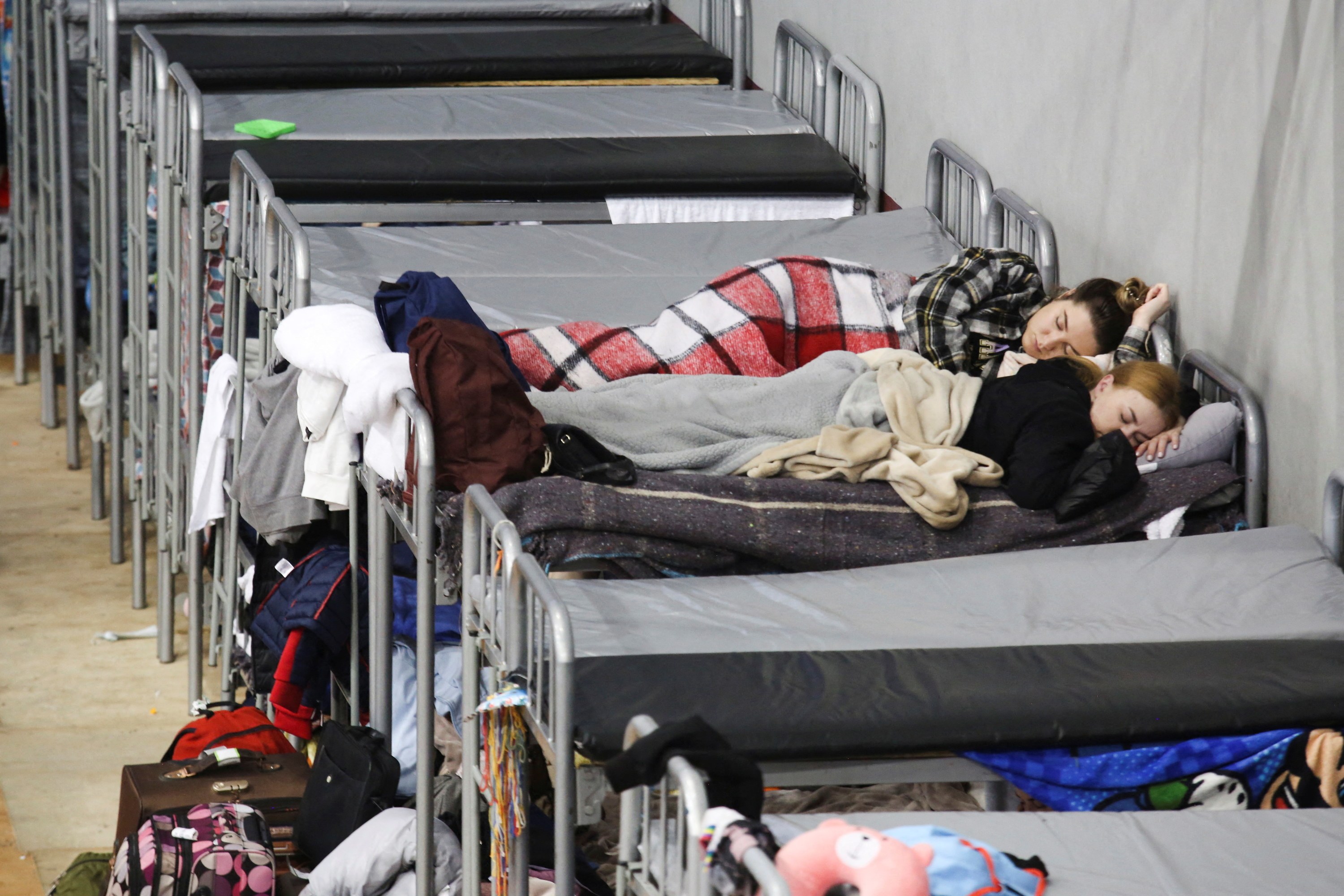
The difference in treatment stems from, at least partly, the Biden administration's belief that Ukrainians fleeing the war don't plan on staying in the US and will go back once the fighting is over.
"This population is really quite unique in that we have heard the resounding request for the refuge to be temporary in nature," a senior Biden administration official said on a call with reporters. "Which is, I would say, quite different from other refugee populations, many of which have fled and have been living in third countries for years and are in need of permanent resettlement."
At other parts of the border in the Mexican cities of Ciudad Juárez and Reynosa, Ukrainians are also able to more easily be exempt from the Title 42 expulsions.
Exemptions to Title 42 like humanitarian parole are difficult to obtain. The majority of immigrants and asylum-seekers don't qualify, and even if they do, they have a difficult time proving it without the aid of attorneys. The process can take weeks and in some cases more than a month even with the help of advocates.
The disparate treatment that mostly Black and brown immigrants receive at the border compared with Ukrainians begins with how the Mexican government treats them the moment they land in Tijuana, Pinheiro said.
The Tijuana government has allowed Ukrainians to stay inside a sports complex that a caravan of immigrants was also allowed to stay in in November 2018, Pinheiro said. However, this time around, immigrants from Ukraine are allowed to sleep inside the complex, whereas most of the others in the caravan were only allowed to sleep outside in tents. Tijuana officials have also offered Ukrainians resources for volunteer housing and even pay for internet access.
Volunteers have also set up a booth at the Tijuana airport for Ukrainians when they land and connect them with aid workers who drive them to the port of entry or shelter while they wait to be processed, Pinheiro said. Other immigrants have had their tourist visas revoked or are removed from Mexico when the government discovers they plan on approaching an official border crossing to seek asylum in the US.
Pinheiro said she would have been arrested by Mexican authorities if she was caught driving Central Americans from the Tijuana airport to the port of entry.
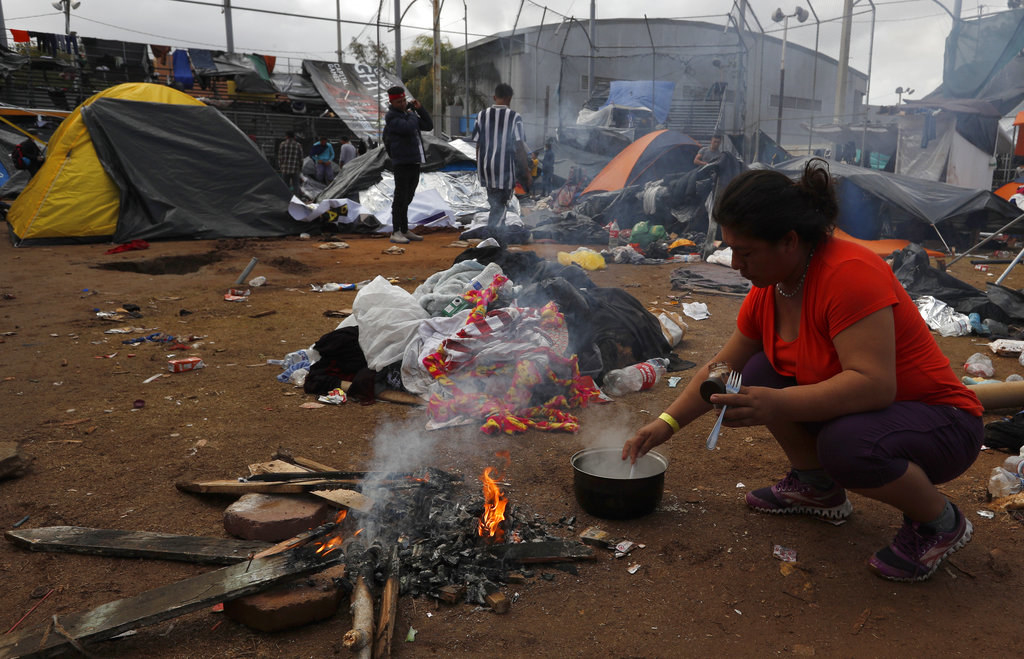
"It's really hard for me to see the disparate treatment of the aid workers. The things they're doing would've landed me in prison, but they're being given almost unfettered access to [Customs and Border Protection]," Pinheiro said.
In the past, Customs and Border Protection would limit the number of immigrants and asylum-seekers the agency processed at official border crossings because they said resources were limited.
Pinheiro said the most she's seen processed in a day was 50 to 80. Sometimes, it was as low as five people. Now, CBP is processing hundreds of people a day, sometimes as many as 1,000, Pinheiro said.
The San Diego Union-Tribune reported that CBP opened a pedestrian crossing that remains closed to the general public in order to speed up how many Ukrainians border officers can process in a day. In February, just south of the same pedestrian crossing, the Mexican government bulldozed a camp of nearly 400 Mexican and Central American asylum-seekers who had been waiting for months to seek refuge in the US. Days later, the US ambassador to Mexico thanked the mayor of Tijuana for closing the immigrant encampment.
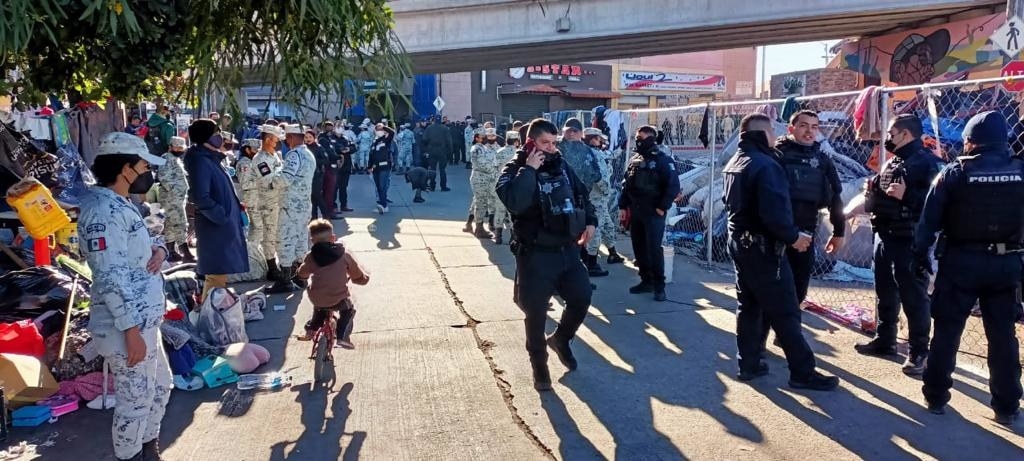
Unlike the majority of immigrants who arrive at the southern border, Ukrainians for the most part aren't being processed as asylum-seekers and are being paroled in Tijuana. This might explain the speedier process, but other immigrants struggle to get humanitarian parole and have to wait weeks to be approved, if at all.
The CBP approval rating for humanitarian parole applications Al Otro Lado submits in Tijuana is about 15% for Black immigrants and 30% for other immigrants, Pinheiro said. These are applications for the most vulnerable immigrants who have a life-threatening medical condition or a disability, or are at imminent risk of harm. The process usually takes several weeks, but there have been cases where immigrants and asylum-seekers have had to wait months to get approved.
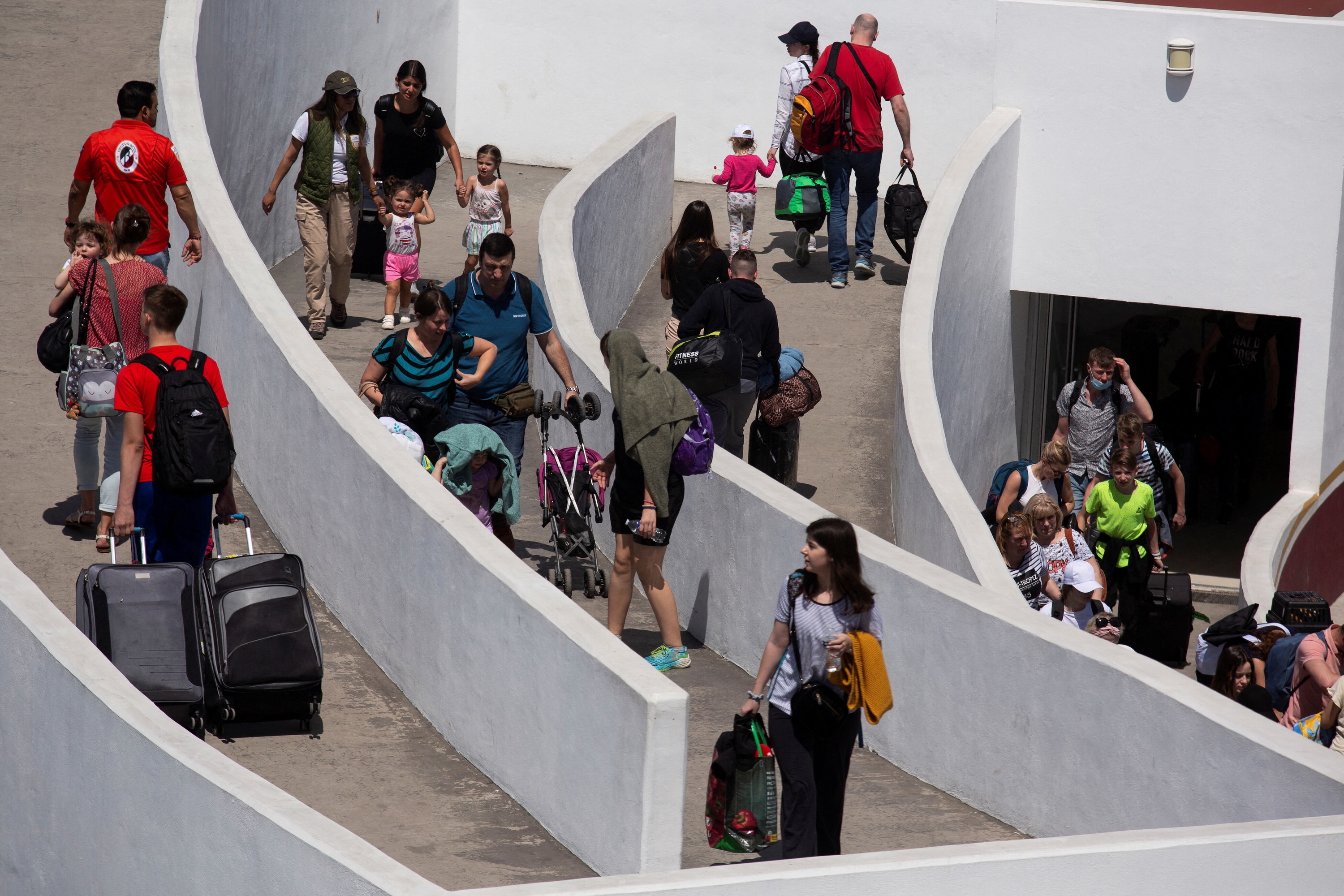
Guerline Jozef, cofounder of the Haitian Bridge Alliance, doesn’t buy the Biden administration’s statements that part of the reason Ukrainians are being treated differently from other refugees is that they don’t plan on staying in the US once the Russian invasion is over.
“So this is really what they are trying to sell,” Jozef said.
The Biden administration's support and welcoming of Ukrainians is validating the humanity of those fleeing their country, Jozef said, as opposed to Black and brown immigrants who struggle to get the same recognition despite also fleeing violence.
"When it comes to non-white people, we have to fight to validate our humanity, to validate our need for protection, our need for love, and our need to just be able to survive," Jozef said. "We don't have an immigration issue in the United States, we have an immigration system built on making sure that Black and brown people are not getting access to protection, asylum, or refuge in the United States."
The response to Ukrainians at the southern border should be used as a model for how the US welcomes anyone seeking refuge, Jozef said. Moving forward, she said advocates like her don't want to hear that CBP doesn't have the capacity to process large numbers of asylum-seekers because the quick response to Ukrainians proves they can if they want.
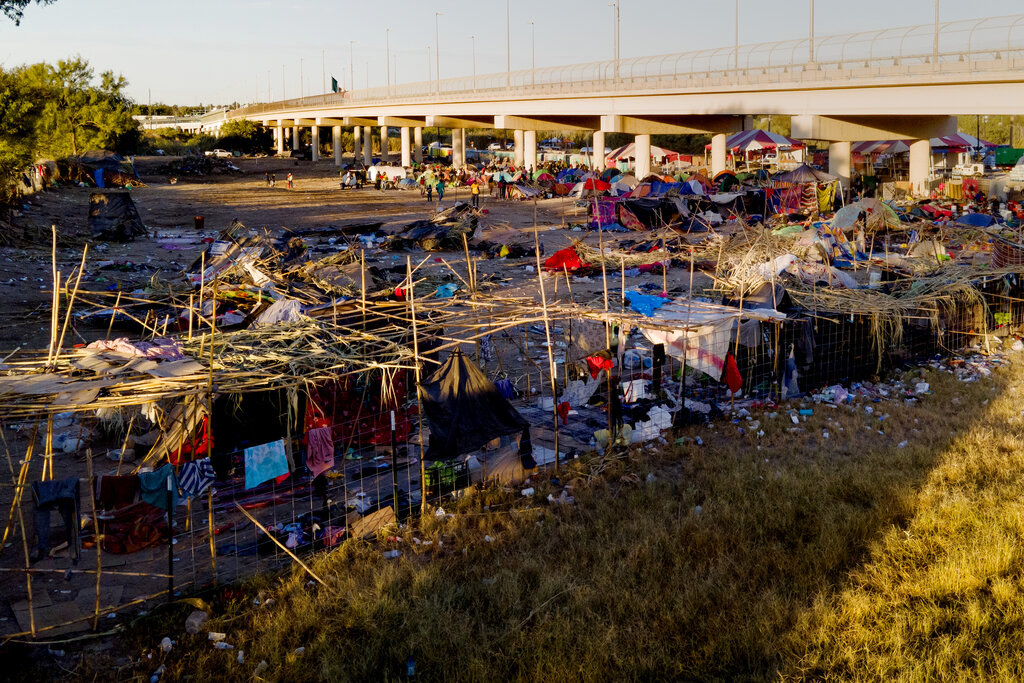
"There is no room for excuses because a person fleeing persecution and war is a person in need of support whether it's a Russian invasion or extreme gang violence in South and Central America. Or whether it's internal or external violence in Haiti or conflict in Cameroon,” Jozef said. “We don't need to be invaded by Russia in order to have our lives validated."
It's striking to see the current response to Ukrainians compared with how the US reacted to thousands of Haitian immigrants and asylum-seekers when they arrived in Texas, Jozef added. Thousands of Haitians have left their country citing earthquakes, poverty, and gang violence often connected to state actors.
In September, Haitians seeking asylum were forced to sleep underneath an international bridge in Del Rio for days, and in some cases weeks, while they waited for US border authorities to process them. Immigrants in Del Rio waited without adequate food, water, and shelter. At night, armed Mexican authorities on the other side of the border in Ciudad Acuña entered cheap motels, knocking on doors and looking for Haitian immigrants to detain.
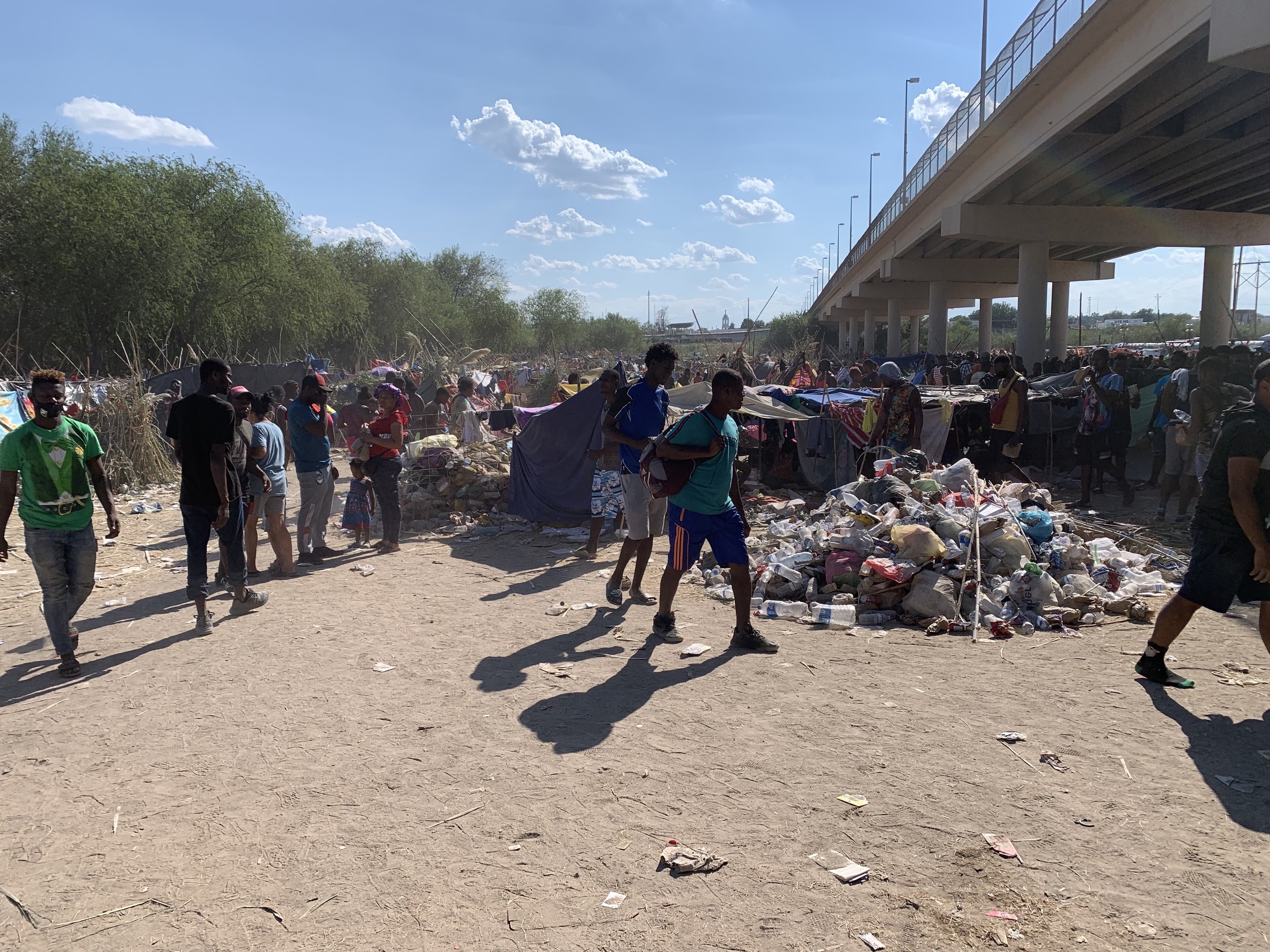
Determining who is able to access the asylum system is very political, said Emem DuPuis Maurus, a Tijuana-based attorney with the Transgender Law Center.
"It's impossible not to draw a connection between what we can do and what our international obligations are, versus what we do for certain people when there's a will to do it," Maurus said.
The Russian invasion of Ukraine is viewed by some as an acute crisis, but the circumstances of a Mexican fleeing the cartel from the state of Michoacán aren't viewed the same way, even though they're no less dire, Maurus said. Watching the situation unfold in Tijuana, Maurus said she thinks about her Jamaican clients with good asylum cases who have been waiting in Mexico for nine months, all the while being harassed by Mexican police and losing time in limbo.
"Haitians are absolutely fleeing something just as bad as Ukrainians, but it doesn't count, and for Ukraine, it counts at least for now," Maurus said. "It is really jarring seeing how the welcome wagon was rolled out in comparison to how it's been going for others."
On the other side of the border in the Mexican city of Reynosa, CBP isn't processing Ukrainians at the same rate as in Tijuana, but it's still quicker compared to other immigrants and asylum-seekers. Sister Norma Pimentel, a nun and executive director of Catholic Charities of the Rio Grande Valley in South Texas, said her organization has an attorney take information from arriving Ukrainians, and then CBP allows about three families a week to enter the US.
Unlike other immigrants applying for humanitarian parole in Reynosa, Ukrainians don't have to wait at all and are exempt from Title 42, Pimentel said.
CNN reported that this week, CBP allowed 95 families — among the most vulnerable out of more than 7,000 immigrants who have been waiting in the Mexican city of Reynosa for Title 42 to end — to seek asylum from within the US. Some of these families, comprising two to three family members, had been waiting in Mexico for more than a year to be given a humanitarian exemption to Title 42. The decision for CBP to suddenly allow hundreds of vulnerable asylum-seekers to enter the US is not common as these humanitarian exceptions were previously only given to small numbers of immigrants.
Taylor Levy, an immigration attorney who spent years working with people who were sent back to Mexico by the Trump and Biden administrations, said Ukrainians are able to show up at an official border crossing in Ciudad Juárez at any time and ask to be exempt from Title 42 without legal representation. Other immigrants struggle to get exempt even with the help of a lawyer.
"It's been very inspiring to see what the administration can do when they want to welcome people with dignity," Levy said. "And it's unfortunate to see that the same level of coordination, response, and effortless processing is only being applied to Ukrainians and not people fleeing for their lives from Haiti, Central America, or from different African countries."
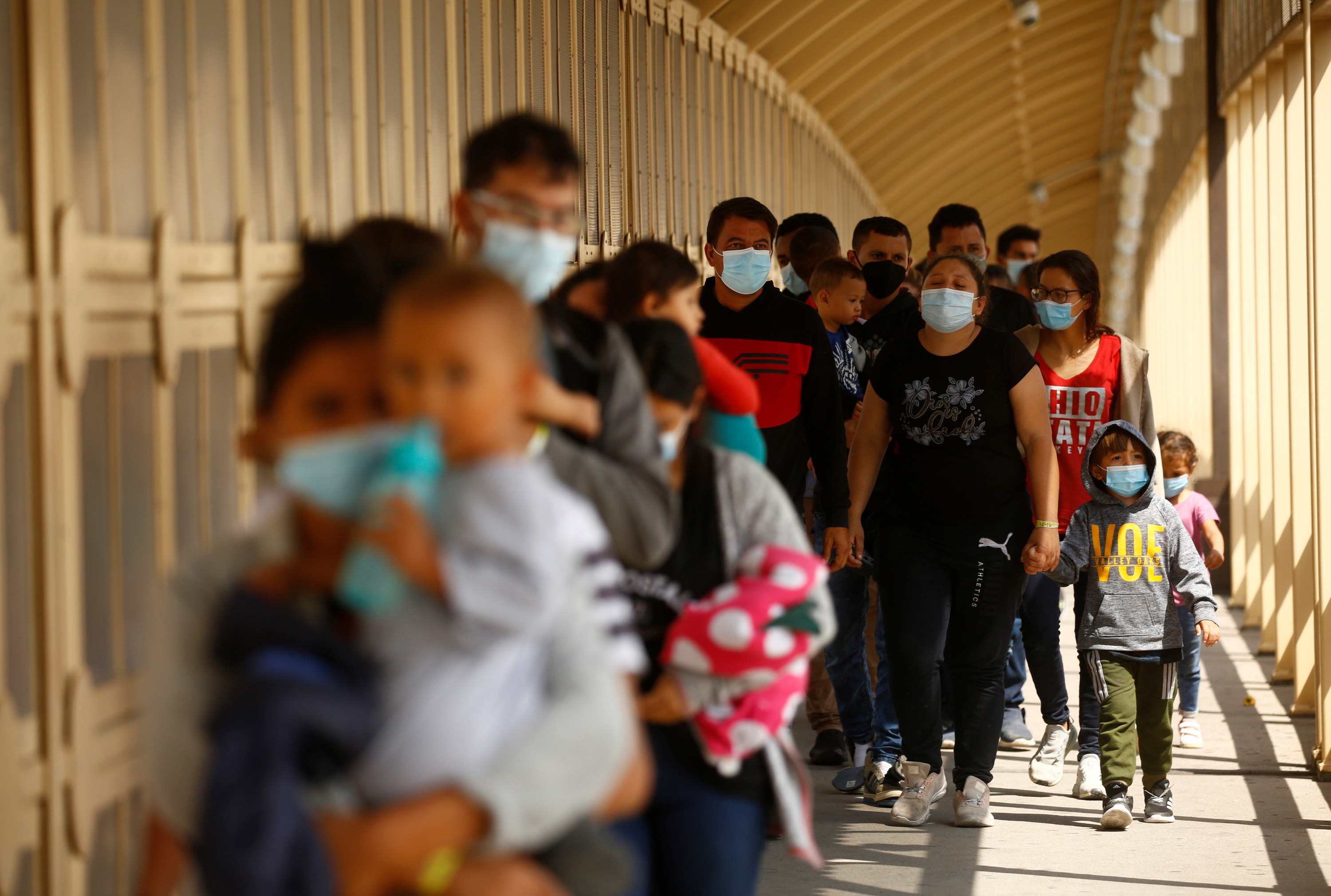
Last week, the Biden administration said it would offer immigrants from Cameroon, many of whom came to the US fleeing a civil war, temporary protection from deportation and the ability to work. However, Levy said, people from Cameroon who are also fleeing a war zone are still unable to seek protection at official border crossings under Title 42, and there's no separate process for them to enter the US like there will be for Ukrainians under the Biden administration’s new plan set to start April 25.
The continued use of Title 42 doesn't make the border or the US more secure, Levy said. In fact, it allows the cartels to increase their prices for smuggling to rates Levy hasn't seen in the more than a decade she's been working with immigrants because now asylum-seekers are trying to enter undetected knowing that the US system has been closed off to them by Title 42 and they'll be expelled if caught.
"Though it's frustrating to see that white refugees made the administration have the political will, the lessons they learned from this experience can easily be transferred to other nationalities," Levy said.
Allen Morris, senior policy and government affairs strategist for the Refugee and Immigrant Center for Education and Legal Services, said Ukrainians fleeing the war should receive a swift US response, but it's clear the same treatment isn't being afforded to other immigrants fleeing violence and conflict.
"Our government has set up a system that works for white supremacy and against Black, brown, and [Asian Pacific Island] immigrants," Morris said. "Ukrainians are virtually able to skip the line. … Meanwhile, our Black and brown brothers and sisters are taking a very dangerous journey just to get to the border, a place they see as a sanctuary and are turned away and told to wait in Mexico."
